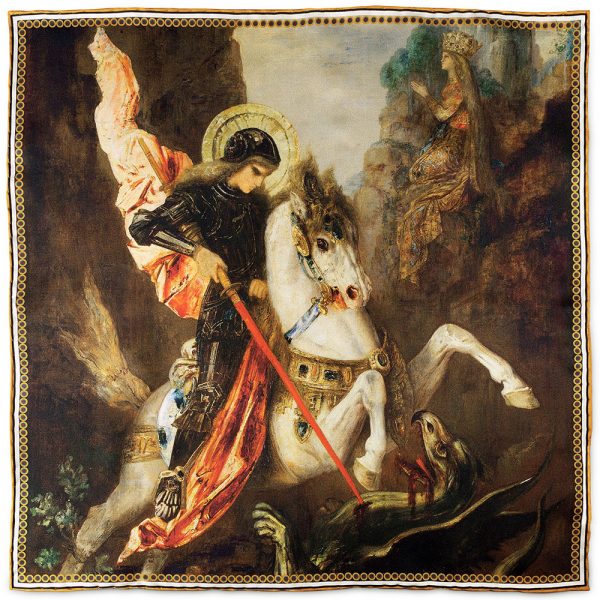It seems to me that bad things come easily. Whether it is ugliness, anger, or every kind of darkness, we not only see such things, but seem “bound” to see them. Why are we “hard-wired” for such observations?
The answer is really quite simple: we are hard-wired to see things that are potentially dangerous, and for obvious reasons. When my son was in his early years, his complete joy and wonder at things made him a “live-wire.” If you were the parent in charge of his safety, you had to keep your eye on him every moment. In that process, we developed some short-hand shouts to wake him up and alert him to danger. The most common one that I remember was, “Bad road!” The shout would stop him in his tracks. We were doing for him what his own brain was learning to do rather slowly.
In the depths of the human brain, there resides an area geared for danger. Properly known as the “Limbic Cortex,” it is nicknamed the “Lizard Brain” by many, in that it is pretty much all the brain that a lizard has. Its task is primitive and simple: it is in charge of “fight, flight, feeding, fear, freezing up, and fornication” (at least that’s how it’s tagged in one popular description). If you think about the things that provoke fight, flight, fear, etc., they consist mostly of danger. With no warnings of danger, our survival in this world would likely be quite short.
Another aspect of danger is that it is often less than beautiful – and therein lies a problem. We are necessarily hard-wired for danger. Our brain doesn’t ask us whether we want to notice bad things. It does the noticing and tells us about them, whether we want to know it or not.
Beauty, on the other hand, requires more intentionality and effort – you have to want it.
In Biblical terms, we can say that when it comes to beauty – you have to ask, to seek, and to knock. The recognition of beauty and its place in our life requires action. We cannot passively wait for beauty to seek us out.
Our hard-wiring also explains why the world of messaging that permeates our day is generally negative. As messaging goes, fight, flight, and fear are more effective. A warning gets our attention whether we want it or not. Even what passes for beauty in our messaging is often rooted in the lizard brain’s penchant for sex.
We have an elderly cat in our home. The better part of her day is spent sleeping. Nonetheless, there is one irresistible thing in her life (at present, not even food moves her very much). What she finds enthralling is movement. If the sunlight reflects off my watch, casting a small bit of light on the wall, she can become quite active, following its every movement (same thing can be achieved with a laser pointer). She’s hardwired to chase it. I’ve often imagined that cat advertisers would put their messaging into laser dots and run them past their intended audience. That’s pretty much how human advertising works – but our laser dots are fight, flight, fear, and sex.
It’s easy to be overwhelmed by the danger signals, amplified and multiplied by a greedy media. Even apart from the media, the day can be dominated by our remembered and imagined fears. Darkness refuses to go unnoticed.
Those who manufacture the buzz that hovers in our minds prefer us as lizards. We are, after all, nothing to them apart from our actions as consumers. Lizards are the most manageable form for consumers: there is no reasoning, no irony, no heroics or self-denial. It is life in a sub-human form. It is not hard for the media managers to maintain the negative buzz of our minds. It is the default position of a significant portion of the brain.
However, we are human beings, not lizards. The hymns of the Church affectionately dub us “rational sheep” (which is a negation of the notion of sheep as passive followers and victims). Nonetheless, our “rationality” (the ability to be more than a lizard) requires intentionality and effort. We are invited to become those-who-act. If we are to be “like God,” we must live intentionally: ask, seek, knock.
Beauty surrounds us and awaits our attention. However, attending to beauty is difficult. It calls to something possible within us: possible, but not automatic. And so, the priest in the Liturgy bids us to “lift up your hearts.” It is a phrase that echoes St. Paul’s admonition, “Set your affections on things above, not on things of the earth.” We do not have a “lizard brain” for the beautiful. We have the heart, and its attention can be directed and nurtured. Learning to “dwell in the heart” also requires us to learn how to “turn down” the noise of the lizard within. My experience through the years is that both (the noetic awareness of the heart and the lizard awareness of the dark and dangerous) grow and increase with feeding. I note, as well, that most of us are starved for beauty.
In the words of St. Paul:
“Finally, brethren, whatever things are true, whatever things are noble, whatever things are just, whatever things are pure, whatever things are lovely, whatever things are of good report, if there is any virtue and if there is anything praiseworthy—meditate on these things.” (Phil. 4:8)















